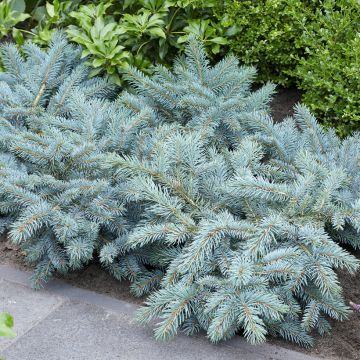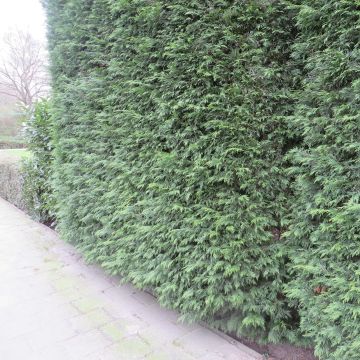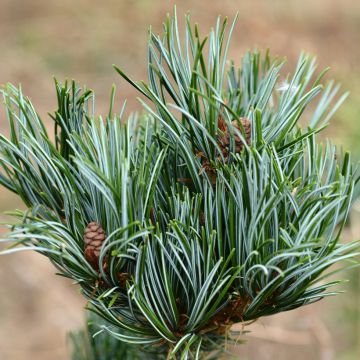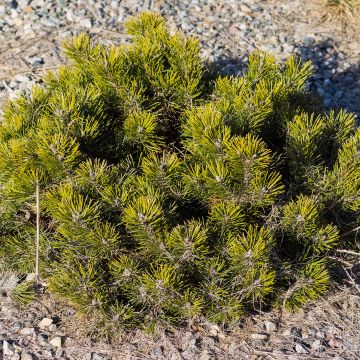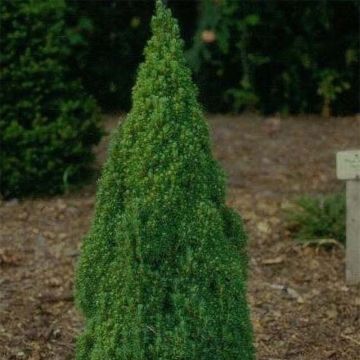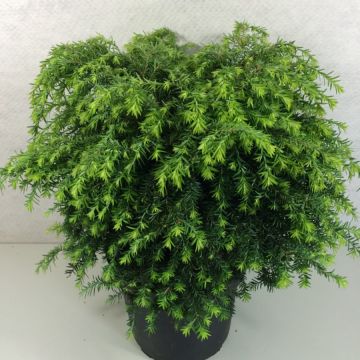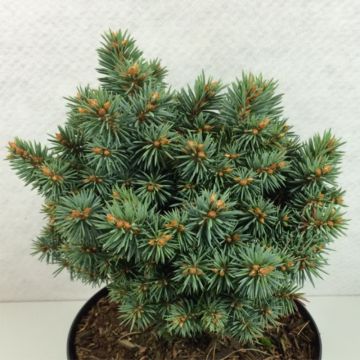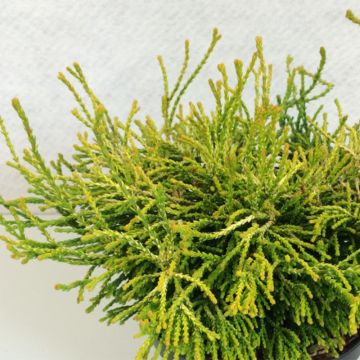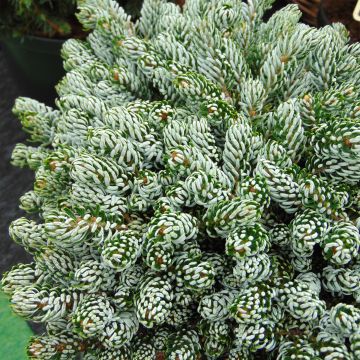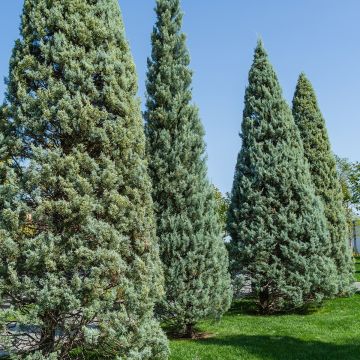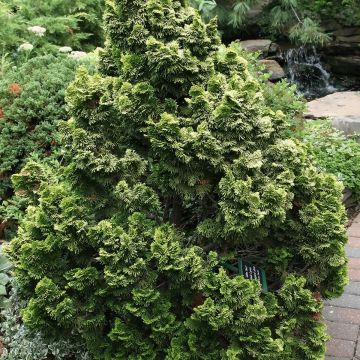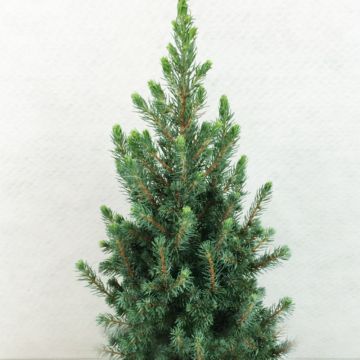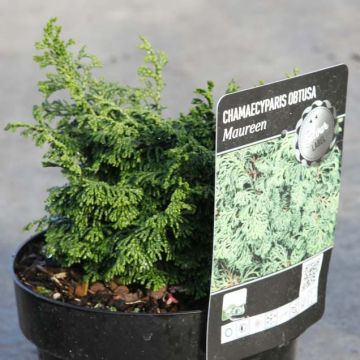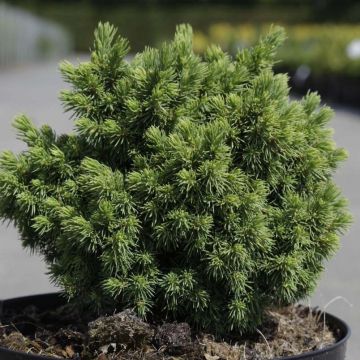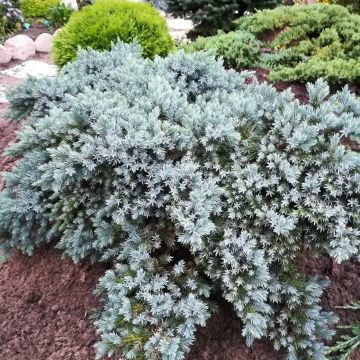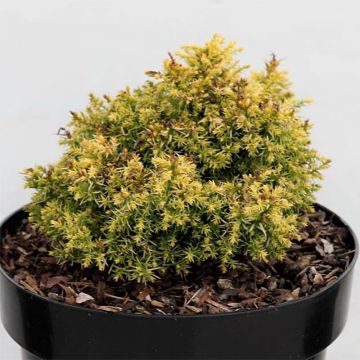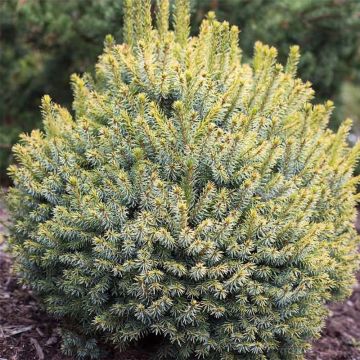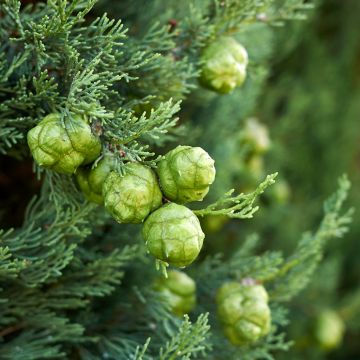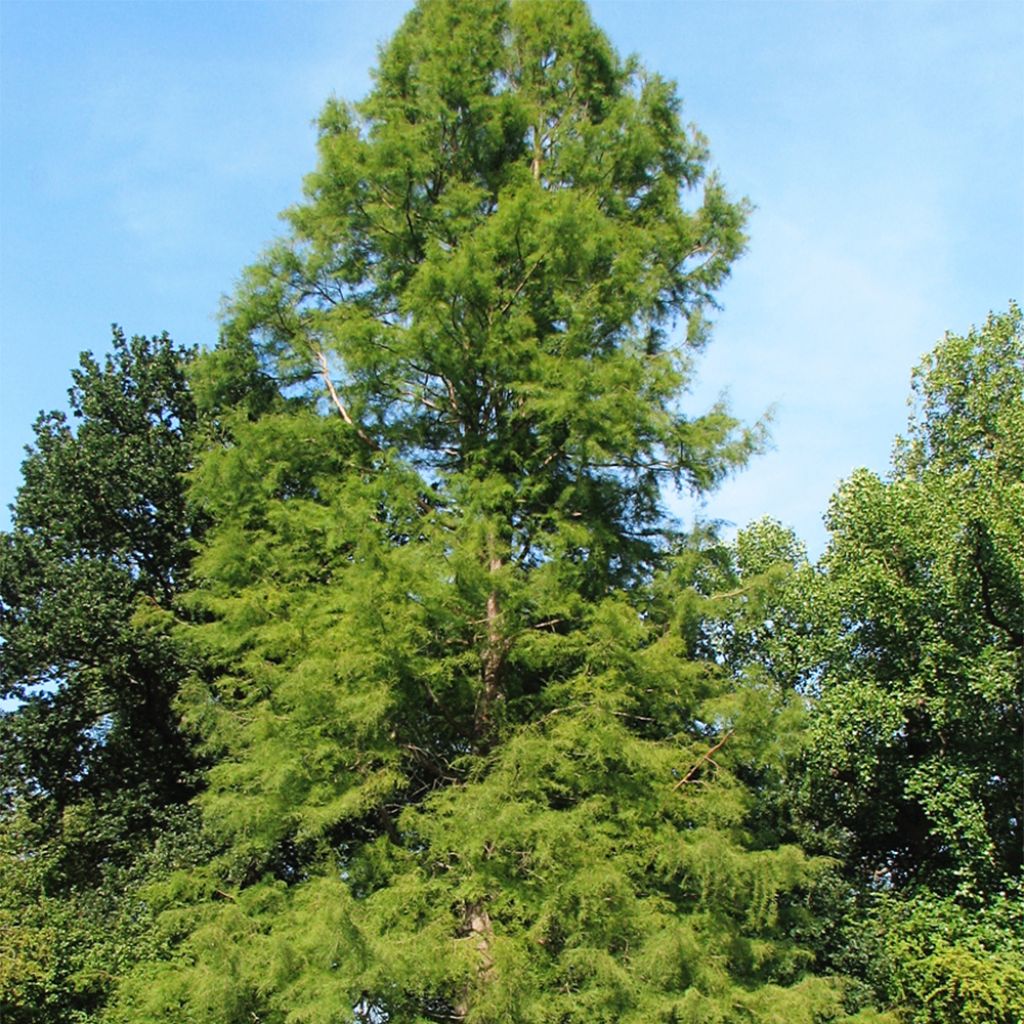

Taxodium distichum - Swamp cypress
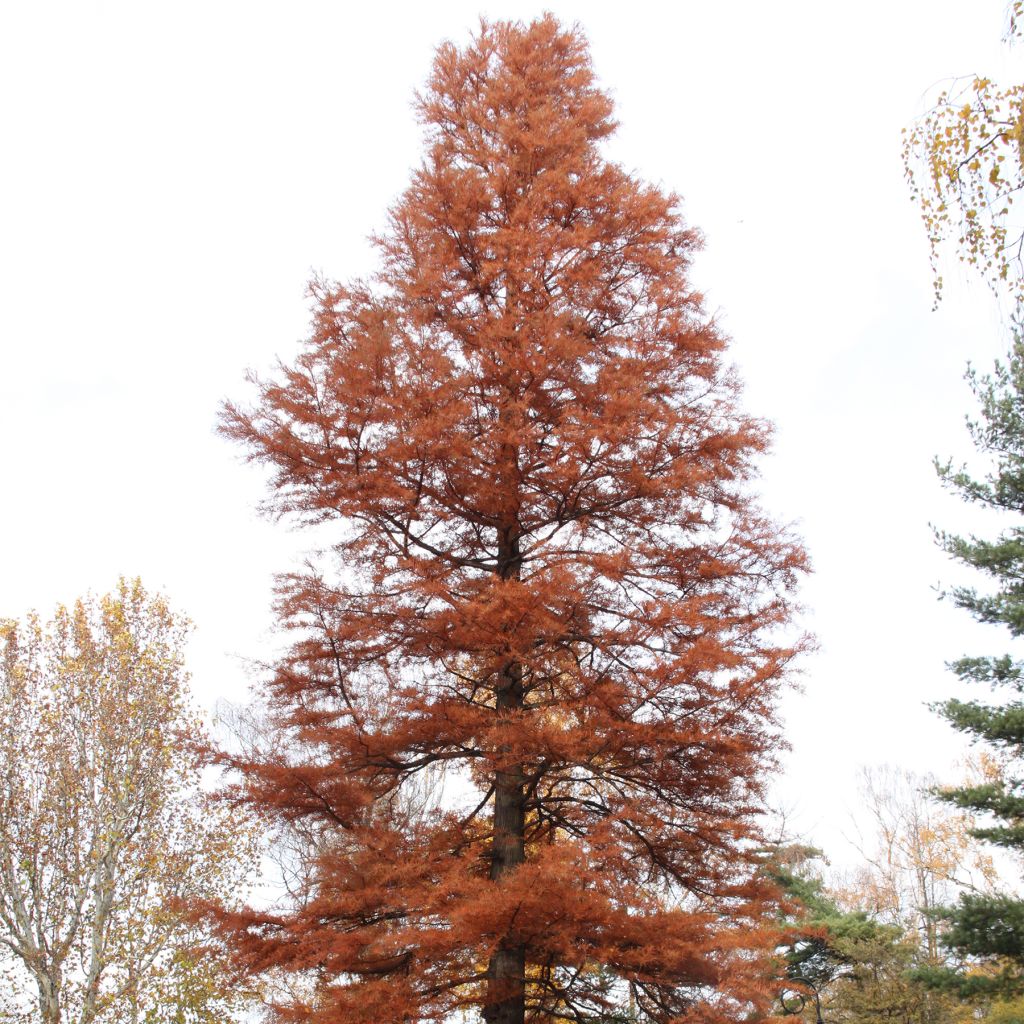

Taxodium distichum - Swamp cypress
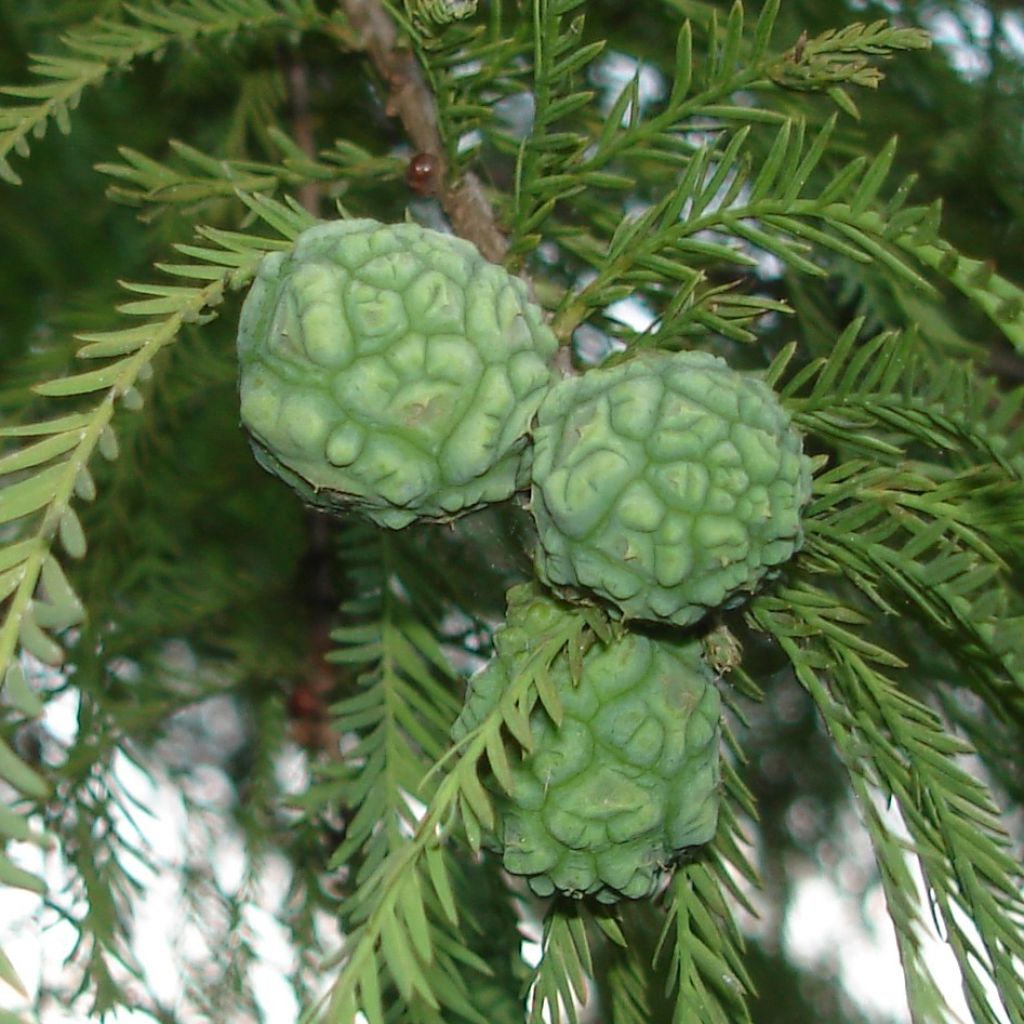

Taxodium distichum - Swamp cypress
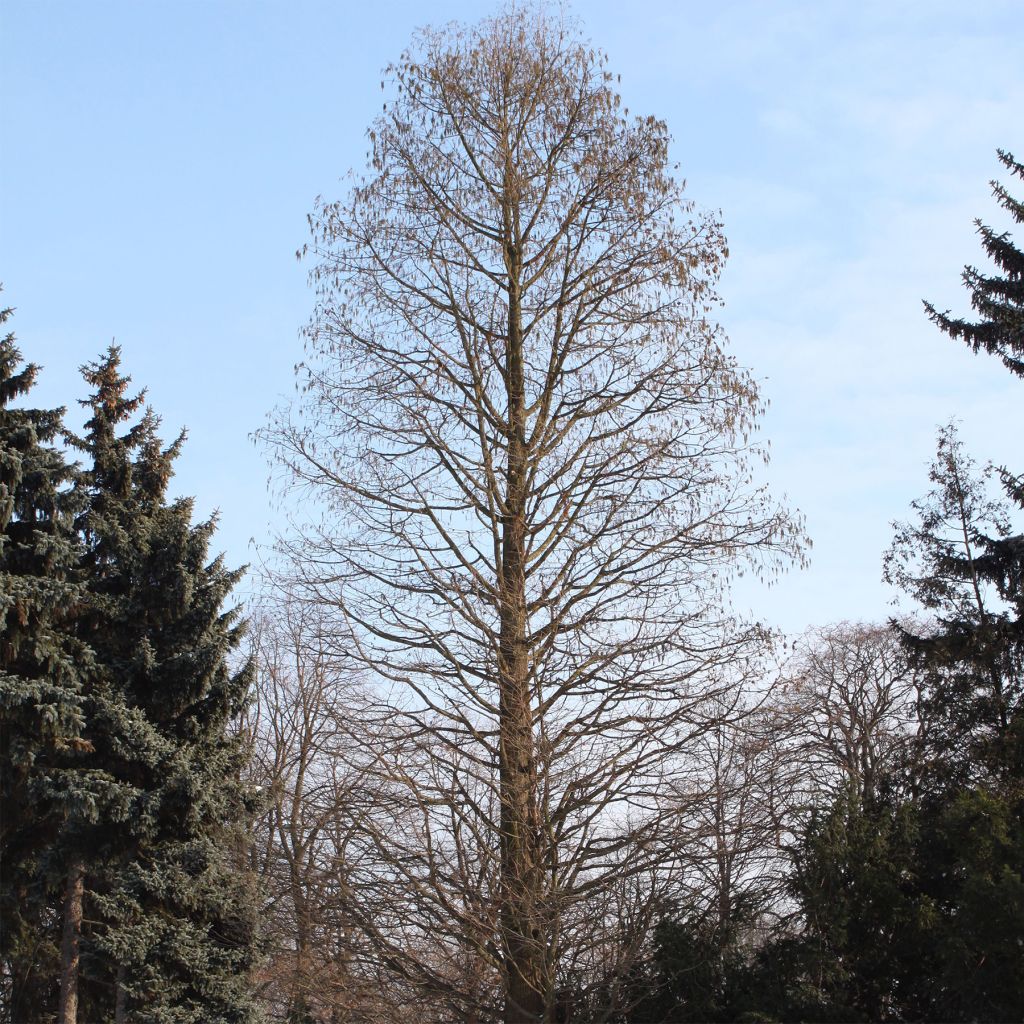

Taxodium distichum - Swamp cypress
Taxodium distichum - Swamp cypress
Taxodium distichum
Swamp cypress, Bald cypress, Louisiana Cypress
Taxodium arrived on the scheduled date, well packaged but with a slightly short stake. As a result, the top is broken. I appreciated being contacted regarding the other tree I had ordered to inform me that you couldn't find it in good enough condition to send it to me and to discuss the alternative solution with me.
Nicole, 12/12/2020
Special offer!
Receive a €20 voucher for any order over €90 (excluding delivery costs, credit notes, and plastic-free options)!
1- Add your favorite plants to your cart.
2- Once you have reached €90, confirm your order (you can even choose the delivery date!).
3- As soon as your order is shipped, you will receive an email containing your voucher code, valid for 3 months (90 days).
Your voucher is unique and can only be used once, for any order with a minimum value of €20, excluding delivery costs.
Can be combined with other current offers, non-divisible and non-refundable.
Home or relay delivery (depending on size and destination)
Schedule delivery date,
and select date in basket
This plant carries a 24 months recovery warranty
More information
We guarantee the quality of our plants for a full growing cycle, and will replace at our expense any plant that fails to recover under normal climatic and planting conditions.

Would this plant suit my garden?
Set up your Plantfit profile →
Description
Taxodium distichum, also known as Bald Cypress or Louisiana Cypress, is a large deciduous and hardy conifer that is particularly well adapted to damp to wet soils. It is distinguished by the presence of emerged and twisted root extensions called pneumatophores, which form at the base of its trunk in waterlogged soil. The trunk itself is very straight and covered in a beautiful deep reddish-brown bark with deep fissures. Its light, slender, and pointed foliage displays magnificent rusty red hues in autumn, then turns brown-golden before falling. It will thrive in a large garden with ordinary, deep, and moist soil, and a sunny exposure.
The Bald Cypress is native to the marshy regions of the southeastern United States, in areas bordering the Gulf of Mexico. As a symbol of Louisiana, it is considered in North America as the emblem of southern swamps. In its natural environment, this taxodiaceous conifer forms a tall tree, reaching nearly 40 m (131.2 ft) in height, with a trunk diameter of 2 m (6.6 ft). In our climates, it maintains a beautiful pyramidal habit, but will not exceed 20 m to 25 m (65.6 ft to 82 ft) in height and 7 m to 8 m (23 ft to 26.2 ft) in width. Its growth is quite fast, and it can live up to 500 years.
This tree is called 'bald' due to its deciduous foliage, an unusual characteristic among conifers, except for larches and sequoias. The light, graceful, and flexible foliage is composed of small light green leaves, flattened and pointed, arranged spirally on the branches but twisted at their base, giving the impression that they are arranged in two flattened rows. They measure from 1 cm to 1.6 cm (0.4 in to 0.6 in) in length and display magnificent autumn colours before falling. The trunk is covered in a fibrous reddish-brown bark, deeply wrinkled and fissured with age. When the tree grows in a marshy or flooded area, it produces specific aerial roots called pneumatophores. These lignified extensions, which can reach a height of 1.7 m (5.6 ft), emerge from the ground or water at the base of the trunk. They seem to play a role in oxygenating the root system, as well as anchoring the tree in shifting and regularly submerged soils. The Louisiana Cypress is a monoecious species: male and female cones coexist on the same individual. The resinous female cones are round, purplish in colour when ripe, and about 2.5 cm (1 in) wide. The seeds are dispersed by water.
Taxodium distichum is a large and highly ornamental conifer that grows easily in any fresh and deep soil. It can be cultivated as an ornamental tree in parks and large gardens, where it will reveal its full potential as a shade tree or specimen. It shows more harmonious growth when cultivated in sheltered conditions without excessive competition. It can be paired with Nyssa sylvatica, or American larch, which requires similar growing conditions. Two species of ferns such as Onoclea sensibilis, in neutral to acidic and moist soil, sun to partial shade, and Dryopteris palustris (Telypteris palustris), ideal in riverside or marsh scenes, in light shade or sun, can also be planted at its base.
Usage: Its wood is very hard and resistant to decay and against termites. It is used in carpentry and appreciated as a construction material. Its shredded bark is used as horticultural mulch.
Advice: Water regularly during the first two years and in case of prolonged drought.
Report an error about the product description
Taxodium distichum - Swamp cypress in pictures
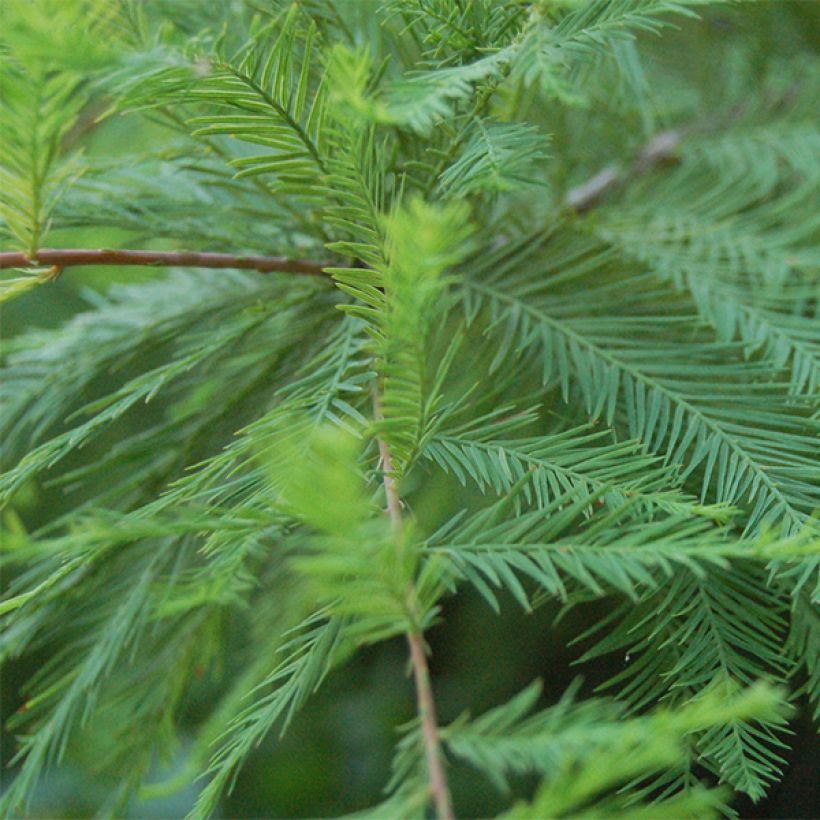

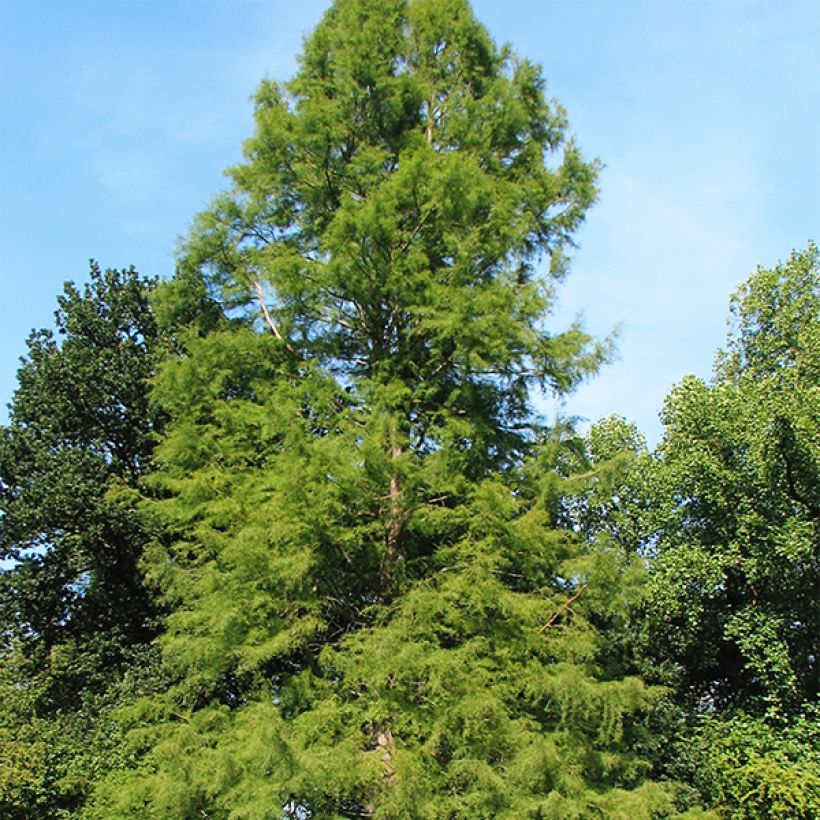

Plant habit
Flowering
Foliage
Botanical data
Taxodium
distichum
Taxodiaceae
Swamp cypress, Bald cypress, Louisiana Cypress
North America
Other Conifers A to Z
View all →Planting and care
Hardy down to at least -15° C (5° F), easily grown in deep and consistently moist soil, Taxodium distichum requires no maintenance. It can be planted in cool, clayey, humus-rich, even peaty and poor soil, preferably not too chalky, in the sun or partial shade. Choose its location carefully, as it does not appreciate being moved. Prune only to remove dead or unnecessary branches.
Planting period
Intended location
Care
-
, onOrder confirmed
Reply from on Promesse de fleurs
Similar products
Haven't found what you were looking for?
Hardiness is the lowest winter temperature a plant can endure without suffering serious damage or even dying. However, hardiness is affected by location (a sheltered area, such as a patio), protection (winter cover) and soil type (hardiness is improved by well-drained soil).

Photo Sharing Terms & Conditions
In order to encourage gardeners to interact and share their experiences, Promesse de fleurs offers various media enabling content to be uploaded onto its Site - in particular via the ‘Photo sharing’ module.
The User agrees to refrain from:
- Posting any content that is illegal, prejudicial, insulting, racist, inciteful to hatred, revisionist, contrary to public decency, that infringes on privacy or on the privacy rights of third parties, in particular the publicity rights of persons and goods, intellectual property rights, or the right to privacy.
- Submitting content on behalf of a third party;
- Impersonate the identity of a third party and/or publish any personal information about a third party;
In general, the User undertakes to refrain from any unethical behaviour.
All Content (in particular text, comments, files, images, photos, videos, creative works, etc.), which may be subject to property or intellectual property rights, image or other private rights, shall remain the property of the User, subject to the limited rights granted by the terms of the licence granted by Promesse de fleurs as stated below. Users are at liberty to publish or not to publish such Content on the Site, notably via the ‘Photo Sharing’ facility, and accept that this Content shall be made public and freely accessible, notably on the Internet.
Users further acknowledge, undertake to have ,and guarantee that they hold all necessary rights and permissions to publish such material on the Site, in particular with regard to the legislation in force pertaining to any privacy, property, intellectual property, image, or contractual rights, or rights of any other nature. By publishing such Content on the Site, Users acknowledge accepting full liability as publishers of the Content within the meaning of the law, and grant Promesse de fleurs, free of charge, an inclusive, worldwide licence for the said Content for the entire duration of its publication, including all reproduction, representation, up/downloading, displaying, performing, transmission, and storage rights.
Users also grant permission for their name to be linked to the Content and accept that this link may not always be made available.
By engaging in posting material, Users consent to their Content becoming automatically accessible on the Internet, in particular on other sites and/or blogs and/or web pages of the Promesse de fleurs site, including in particular social pages and the Promesse de fleurs catalogue.
Users may secure the removal of entrusted content free of charge by issuing a simple request via our contact form.
The flowering period indicated on our website applies to countries and regions located in USDA zone 8 (France, the United Kingdom, Ireland, the Netherlands, etc.)
It will vary according to where you live:
- In zones 9 to 10 (Italy, Spain, Greece, etc.), flowering will occur about 2 to 4 weeks earlier.
- In zones 6 to 7 (Germany, Poland, Slovenia, and lower mountainous regions), flowering will be delayed by 2 to 3 weeks.
- In zone 5 (Central Europe, Scandinavia), blooming will be delayed by 3 to 5 weeks.
In temperate climates, pruning of spring-flowering shrubs (forsythia, spireas, etc.) should be done just after flowering.
Pruning of summer-flowering shrubs (Indian Lilac, Perovskia, etc.) can be done in winter or spring.
In cold regions as well as with frost-sensitive plants, avoid pruning too early when severe frosts may still occur.
The planting period indicated on our website applies to countries and regions located in USDA zone 8 (France, United Kingdom, Ireland, Netherlands).
It will vary according to where you live:
- In Mediterranean zones (Marseille, Madrid, Milan, etc.), autumn and winter are the best planting periods.
- In continental zones (Strasbourg, Munich, Vienna, etc.), delay planting by 2 to 3 weeks in spring and bring it forward by 2 to 4 weeks in autumn.
- In mountainous regions (the Alps, Pyrenees, Carpathians, etc.), it is best to plant in late spring (May-June) or late summer (August-September).
The harvesting period indicated on our website applies to countries and regions in USDA zone 8 (France, England, Ireland, the Netherlands).
In colder areas (Scandinavia, Poland, Austria...) fruit and vegetable harvests are likely to be delayed by 3-4 weeks.
In warmer areas (Italy, Spain, Greece, etc.), harvesting will probably take place earlier, depending on weather conditions.
The sowing periods indicated on our website apply to countries and regions within USDA Zone 8 (France, UK, Ireland, Netherlands).
In colder areas (Scandinavia, Poland, Austria...), delay any outdoor sowing by 3-4 weeks, or sow under glass.
In warmer climes (Italy, Spain, Greece, etc.), bring outdoor sowing forward by a few weeks.






























